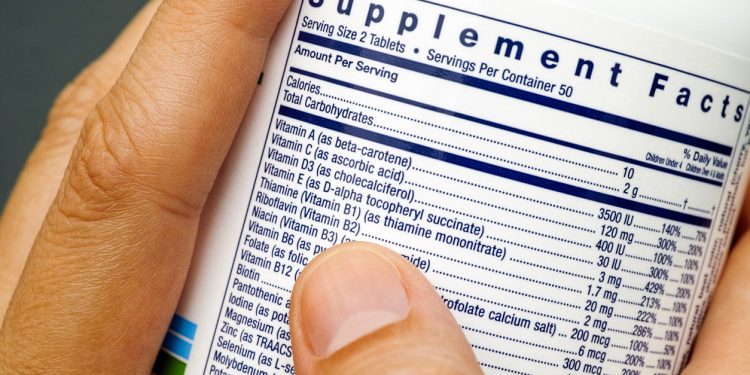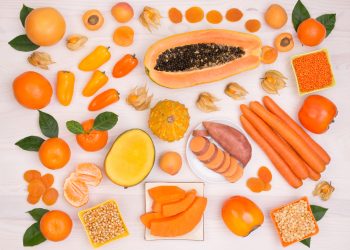Did your latest visit to the natural health practitioner cost an arm and a leg? Well, perhaps not the visit itself — but the supplement selection that followed?
For those with lots of healing to do, it’s not uncommon for supplement costs to far surpass consultation costs. You might spend £80 pounds on a quick consultation and another £180 on supplements!
It might be tempting to resort to cheaper alternatives, particularly if the vitamin C you find at the supermarket costs only one-third as much as the fancy liposomal vitamin C you were advised to try. (Those of you on your own personal health journey probably know what we’re talking about all too well here.)
In prior articles we’ve covered why isolated vitamins aren’t always healthy, but in this one we’ll be looking at why even “premium” supplements aren’t created equal. You’ll learn 5 key reasons not all supplements are the same — and how to identify supplements that are worth your while. Here’s a closer look.
- Are supplements even needed?
- Nutrient balance: the missing key
- Do nutrients exist in different forms?
- Are your supplements actually toxic?
Are supplements even needed?
Well . . . that depends on what era you’re living in.
Our not-so-distant ancestors enjoyed a world replete with fertile soils, nutrient-dense whole foods, and unpolluted groundwater.
Our modern environment, however, is a different story. Very few people today have access to the pristine soil and pristine water needed to make pristinely nutritious foods. Even fresh food is likely to be lower in nutrients than the foods your grandparents enjoyed. You can thank overfarming for that — decades of overfarming has left our soil sterile and depleted. [1]
As if that weren’t enough, you might have higher nutrient needs than the official recommendations allot for. Working hard? You might need more B vitamins. Trouble sleeping? You might need more magnesium. Under chronic stress? You might need more of . . . everything. [2]
And while fulfilling one’s vitamins and minerals requirements with whole foods remains a timelessly good option, some nutrients just aren’t easy to get from common foods. Take vitamin K2, for example. It’s really only found in carefully fermented vegetables and cheeses.
Long story short, sometimes supplements are needed. It would take larger amounts of time and money than most people are willing to spend to get everything you need from food.
Nutrient balance: the missing key
But supplements often come with one glaring problem: they introduce a single type of nutrient into a multi-nutrient equation. Just like the temperature in one room of your house affects the temperature in the next room over, most nutrients have some type of effect on one another. Some amplify each other, while others deplete or ‘spend’ each other. The complexity of these interactions means that maintaining a true-to-nature balance is important.
Omega 3 supplementation is a perfect example of this effect. Omega 3 supplementation became en vogue from the moment researchers initially uncovered its health benefits. It turns out, however, that one’s omega 3:6 ratio is what really matters, so much so that most people are better served eating a balanced blend of omega 3 foods (like salmon) and omega 6 ones (like almonds). [3]
It’s for this same reason that supplemental B vitamins often come in the form of a carefully balanced B complex. In super simple terms, this ensures that each B vitamin has the space needed to do its part without getting overpowered by the other.
Do nutrients exist in different forms?
They sure do! This is another part of the supplemental debate — and one of the biggest reasons all supplements are not the same. Magnesium supplements can exist in the forms of several different forms, called isomers. These include:
- Magnesium oxide
- Magnesium citrate
- Magnesium malate
Magnesium malate is generally considered the best form of supplemental magnesium. It’s easily absorbed, and even its metabolisation (into malic acid) provides health benefits. [4]
This same concept holds true for most supplements — they usually exist in a cheap form, an intermediate form, and a premium form. Feel free to ask your healthcare practitioner if you’re unsure which form is best for you.
Are your supplements actually toxic?
Another thing to keep in mind? Even supplements labelled as premium can be laden with unhealthy additives. Check out the common culprits below:
- Silicon Dioxide
- Magnesium Stearate
- Microcrystalline Cellulose
- Calcium Phosphate
- Glycerin
- Titanium Dioxide
- Talc
- Xanthan Gum
- Guar Gum
- Acacia Gum (Gum Arabic)
- Carrageenan
- Potassium Sorbate
- Citric Acid
- Sodium Benzoate
- Ascorbyl Palmitate
- Beeswax
- Soy Lecithin
- Dicalcium Phosphate
- Polyethylene Glycol
- Mannitol
- Sorbitol
Supplements that come in tablet or capsule form don’t just contain nutrients. Making tablets stick together takes additives; so does keeping capsules intact. Trustworthy supplement brands use minimal amounts of safe additives. At Hirsch Organic we do not use any binders, fillers, or flow agents in our products.
Our PrimeOrgan™ Organic Grass Fed Beef Liver Supplement, for example, is verifiably free from:
- Stearates
- Lubricants
- Binders
- Fillers
- Flow agents
- Other additives
- Hormones
- Pesticides
- GMO’s
- Glyphosate
All in all, the best supplements are whole foods — whole foods that have been placed in a more supplemental form. Cheap supplements are usually the price they are for a reason. Stay away from products that contain the additives we mentioned above!
And if you’re ever in doubt, carefully read the label and talk to your healthcare practitioner before buying. For most people, most of the time, it makes sense to get your nutrients from nature.








